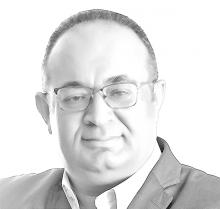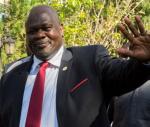You are here
Rethinking, rejection or reform?
May 14,2012 - Last updated at Feb 06,2018
I had the privilege to be in contact with two of the world’s revolutionary professors and thinkers. Both are deceased now. Mohammed Arkoun died in September 2010, Kamal Salibi died in September 2011. Both were 82 when they left our world.
I knew more about Islam from Salibi, who was Christian, and more about Christianity from Arkoun, who was Muslim. I learned more about the mechanisms of critical thinking and objective writing from both.
While working closely with Salibi in Amman on many interfaith and intercultural projects, I read most of Arkoun’s books. I was taken by his lifetime intellectual project “Rethinking Islam”. I was introduced to almost all aspects of his intellectual pulse before I met him in 2007.
I assisted Salibi in writing his diaries, “A Bird on an Oak Tree”, and officially was the editor of the book. I also used to translate between Arabic and English for him in daily academic works. He left Amman at the end of December 2003. The connection between us resumed through e-mail and Facebook.
I am not writing this article to just say that I knew the two professors. They both were great teachers for me and I benefited much from them intellectually. But they belonged to what I call “isolated identity”.
They were intellectuals whose works were rejected by wider Arab and Muslim circles, and were politically attacked for their archaeological efforts in history, knowledge and thought. They excavated and uncovered new epistemological layers for better understanding the history of early Christianity and Islam. Still, they were condemned for ideological reasons.
“Isolated identities” in the Arab world means that scientific thinking leads to rejection, discrimination then isolation. Neither of these two men took the mainstream conceptions for granted. They scientifically defied deeply rooted realities and revolutionised the way of looking at histories of Christianity and Islam. Their works faced a long process of isolation and distortion.
The mindset of “rethinking” always faces the mechanisms of rejection in the Arab region. This is how I feel and live it.
Arkoun and Salibi are remembered on some occasions and in limited circles, although they invested their lives in huge intellectual projects that are of great importance to humanity. For both of them ideology and private agendas are killers of scientific and critical thinking.
Sometimes, Salibi and I would spend a whole day editing one paragraph of few lines. The next day he would cancel the whole paragraph because “someone might hear an echo of distant ideology in it”, he used to tell me.
“I do not want to enrage anyone because scientific and objective writing must be as pure as light.”
He believed a scientific idea should introduce itself.
Arkoun talked about “the strategy of rejection”, which is a result of “imprisoning mind by ideology”. For him, ideology is ignorance; when mind is imprisoned by ignorance, it uses rejection to extinguish enlightened thinking.
Sadness was the end result for the minds of both Salibi and Arkoun.
When I last saw him, Salibi was leaving for Beirut with sadness in his eyes. I saw the same in Arkoun’s eyes while he was talking about “those who insist not to listen”.
When ignorance becomes a mainstream manifestation, what is the best identity marker that intellectuals should magnify: rethinking, rejection or reform?
The writer is media strategist, interfaith and intercultural specialist. He contributed this article to The Jordan Times.
-------------------------













